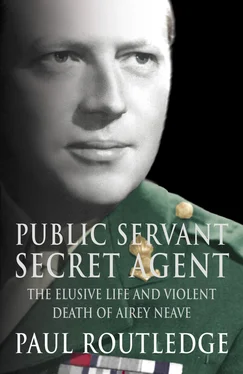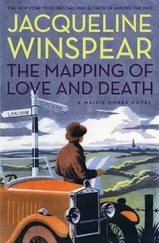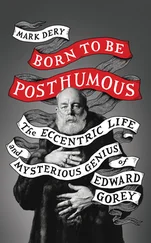Sportsmen who had been joking began singing; the mood became religious and the marchers expectant. On their parade from Lustgarten down Berlin’s Unter den Linden, they passed the Royal Palace of Kaiser Wilhelm I and the Ministry of the Interior, home of Hermann Goering’s newly established Gestapo. When Neave broke step with his fellow marchers, Dietrich rounded on him, but it happened again before they reached their festival site, the Brandenburg Gate. ‘I found it difficult to keep in step,’ he admitted. ‘Something subconscious was drawing me away.’ 6 The gate was floodlit and festooned with Nazi flags, resembling, he recalled, some gateway to Valhalla. As they marched towards the burned out ruins of the Reichstag, bands played the Horst Wessel song (the Nazi anthem) and Neave was caught up in the emotional turmoil that prompted cynical and doubting fellow marchers alike to give the Nazi salute. ‘Some were on the verge of tears,’ he said. ‘Afterwards, I realised that they were lost forever to the Revolution of Destruction, whereas I would escape.’ 7
Massed bands prepared them for a half-hour speech by Reichssportkommissar von Tschammer und Osten. Airey, the product of a civilisation at odds with the hysteria of Fascism, was bored. The speech was tedious and hackneyed, ‘a maddening anticlimax’. While he fretted, all around him the young intelligentsia listened to the brown-shirted thug with rapt attention, breaking into ‘Deutschland über Alles’ when the speech was over. Neave’s reportage of these events has something of ex post facto reasoning about it. A British teenager, even one educated at Eton, pitchforked for the first time into a foreign country undergoing such convulsions, is unlikely to have come to such sophisticated conclusions. Recollecting these events twenty years later, Neave invested himself with a remarkably mature social and political intelligence, all of which certainly made for a better story. Had his liberal-minded mother known about the reality of Nazism, Airey mused, she would have recalled him instantly. Looking back, he realised that Hitler was preparing the young people of Germany for a war that he had always intended. His youthful eyes had been opened to the dangerous neurosis sweeping Germany but it would be seven more years before he was swept into the net of depravity. He returned to school for the remainder of his final year, to a Britain more perturbed about the controversial MCC bodyline tour of Australia than events in Berlin.
Eton in late 1933 must have seemed an anticlimax after the convulsions he had witnessed in Berlin. His school record shows flashes of distinction rather than consistency. After Eton, an orthodox journey through Oxford – he had chosen to go to Merton rather than follow his father to Magdalen – into the law seemed to beckon. Of good academic repute built initially on the classics, the Merton to which Neave went in the autumn of 1934 was still steeped in Victorian tradition. As the age of adulthood remained at twenty-one, the college stood in loco parentis to its undergraduates and took its responsibilities seriously. Discipline was officially strict, though the authorities turned a blind eye to certain misdemeanours. For the first year students lived in. They had agreeable but austere rooms. There were very few bathrooms: each set had a chamberpot, emptied by the college scout who acted as valet and housekeeper. A normal academic day began at 7.30 a.m. when the scout brought hot water for washing and shaving, and undergraduates then had to attend a roll-call at 8.00, ‘properly dressed’ in socks as well as gowns over their normal clothing. They signed their names in a register in a lecture room in Fellows’ Quad, under the watchful gaze of the day’s duty don. Attendance at matins in the college chapel was an acceptable alternative to roll-call.
After a day of lectures and tutorials, they were free for the evening. Drinking in Oxford’s pubs was forbidden and the rules were enforced by bowler-hatted ‘bulldogs’ (university proctors’ assistants) who toured the watering holes accosting suspects. College gates were closed at 9.00 p.m., and after that students had to ‘knock up’ the porter in his turreted fifteenth-century gatehouse to gain admission. They were fined sixpence after 10.30, and a shilling after ii .00. If an undergraduate had permission to stay out after midnight – rarely granted – he paid a fine of half a crown.
This was all quite expensive for the mid-thirties, when a young man at Oxford could live comfortably on £250 a year, so the curfew was regularly breached by climbing over the perimeter wall back into college. Indeed, it was one of Merton’s traditional sports. Reputedly, twenty-eight break-in routes existed, the most popular being over the wall in Merton Street into the college gardens and then through the loosened bars of a ground-floor set of rooms, where it was customary to leave small change on the table of the hapless undergraduate who occupied the rooms. Dons discreetly allowed the bars to remain loose.
Neave was undoubtedly one of the climbers, an unconscious rehearsal of his exploits at Colditz a few years later, and in captivity he must have mused on the irony of his position, where, for three years, he had perfected the art of breaking in rather than out. Once at Oxford, Neave quickly made his way to the worst company that Merton offered. He was elected to the exclusive Myrmidon Club, a group of undergraduates, never more than a dozen in number, who dedicated themselves to the good things of life. The club was founded in 1865, fancifully in emulation of George Bathmiteff, a Russian nobleman and Merton undergraduate who had dallied with a danseuse who wore a garter of purple and gold. Originally, its aims were to explore the Cherwell and other river systems, but with the advent of undergraduates like Lord Randolph Churchill in the 1870s the club soon became the haunt of young bloods. To perpetuate the memory of the danseuse, Myrmidons, named after the faithful followers of Achilles, wore purple dinner jackets faced with silver and white waistcoats edged with purple and gold. Their chief activities were eating and drinking, generally in each other’s rooms but also formally every term in their own dining rooms above a tailor’s shop in the High Street.
Within months of going up to Merton, Neave was inducted into the Myrmidons, at a meeting in the rooms of K.A. Merritt, a keen tennis player. Colin Sleeman, who was to become Captain of Boats and subsequently a distinguished lawyer and defence counsel at the Far East War Crimes Tribunal, was elected the same day. At that point the club numbered seven. They met regularly in Neave’s rooms for the following year, and in June 1936 he was elected secretary. The minutes show him to have been a conscientious but terse recorder of events. On 20 October 1936, the Myrmidons met in Mr Logie’s rooms, he wrote in a flowing (indeed, overflowing) Roman hand, and fixed the dates for lunch and dinner that term. It must have been a good meeting. Neave’s account, in a trembling hand, is full of crossings-out and emendations. He signed himself with a flourish and then underneath wrote ‘trouble’, without further explanation. On 5 February 1937, he recorded that the Myrmidons met in Mr Wells’s rooms and elected two new members. They organised lunch ‘for a date now lost in the mists of obscurity’, or perhaps the mists of Dom Perignon. The club now had nine members, and was ‘full’. The minute books are the only formal history of the Myrmidons’ activities, though they are still a legend for drinking and bad behaviour at Merton. Some idea of their academic application may be gained from the degrees posted in the college register. One got a fourth in geography, another a pass degree in mathematics; Merritt gained a third in history while Sleeman managed only a fourth in jurisprudence. The Myrmidons were capable of sottishness but were no more than undergraduate drunks. They invited Old Boys to their dinner, invariably held in London, where Neave had become a member of the Junior Carlton Club. They also aimed high in their guest invitations. As late as 1951, Winston Churchill, recently reinstalled as Prime Minister, wrote regretting that he could not attend their dinner because the pressure of affairs was ‘considerable’.
Читать дальше












